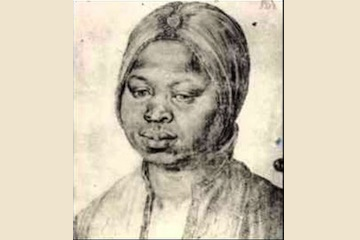Black History
Africans were brought to the U.S. as slaves in large numbers until the 1800s. Since that time their descendants have formed the majority of the black community in America. Their status in society has improved greatly since the Civil Rights movement of the 1950s.
Key Topics:
- Atlantic slave trade
- Slavery in the United States
- Black church
- Underground Railroad
- Thirteenth Amendment to the United States Constitution
- Disenfranchisement after the Reconstruction Era
- Jim Crow laws
- Great Migration (African American)
- Brown v. Board of Education
- Martin Luther King, Jr.
- Civil Rights Act of 1964
- Barack Obama
Recommended Reading
- Nicholas Lemann - The Promised Land: The Great Black Migration and How It Changed America
- Gateway to Freedom: The Hidden History of the Underground Railroad - Eric Foner
- The Underground Railroad - Raymond Bial
- The Atlantic Slave Trade (Problems in World History) - David Northrup
- Plessy v. Ferguson: Race and Inequality in Jim Crow America (Landmark Law Cases and American Society) - WilliamJames Hull Hoffer
- The Gettysburgh Address and the Thirteenth Amendment to the Constitution of the United States of America - Sam Fink
- Brown v. Board of Education and the Civil Rights Movement - Michael J. Klarman
Elizabeth Key Grinstead, the Freedom Suit, and Colonial Virginia
Elizabeth Key Grinstead was one black woman who sued and won her freedom in early Colonial Virginia. Such cases were soon put to an end.
Timeline
- 1619 - First Africans are imported to the colonies as indentured servants. Over the next fifty years a racial caste system develops, culminating in slavery.
- 1739-1740 - Stono Rebellion (slave revolt) in South Carolina ends in failure -- 44 slaves and 21 whites killed. Gruesome reprisals ensue.
- 1831 - Nat Turner launches a failed slave revolt in Virginia, leading to numerous reprisals and restrictions on slave activity.
- 1850 - Lucy Stanton becomes the first black American woman to graduate from college when she completes her studies at Oberlin College.
- 1850-1860 - The Underground Railroad, The Fugitive Slave Act, the caning of Senator Charles Sumner, Dred Scott v. Sandford, "Bleeding Kansas", and the failed uprising of John Brown highlight the degenerating atmosphere on slavery.
- 1865 - The 13th Amendment ends slavery in the United States. Reconstruction begins in the South.
- 1877 - The disputed election of 1876 is awarded to the Republican candidate, Rutherford Hayes, in a compromise. Federal troops are withdrawn from the South and the Reconstruction era ends.
- 1891 - Daniel Hale Williams founds the Provident Hospital in Chicago and performs one of the first open-heart surgeries two years later.
- 1896 - George Washington Carver becomes the director of agricultural research at Tuskegee Institute in Alabama, specializing in peanut farming and its benefits on the soil.
- 1919-1930s - The Harlem Renaissance flowers in New York, featuring Langston Hughes, W.E.B. Dubois, and others.
- 1944 - Vivien Thomas's operation to cure "blue baby syndrome" is performed for the first time by Alfred Blalock. Thomas receives very little credit for years to come.
- 1954 - Brown v. Board of Education outlaws segregated schools. President Eisenhower is later forced to deploy the 101st Airborne Division to enforce the decision.
- 1955 - The Montgomery Bus Boycott unleashes a wave of civil rights protests across the United States.
- 1964 - The landmark Civil Rights Act of 1964 is passed, significantly strengthening the federal enforcement of civil rights laws for minorities.
- 2008 - Barack Obama becomes the first African-American to be elected President of the United States.
ERAS:
Pre-Contact - Colonial - Revolutionary - Antebellum - Civil War - Gilded Age - Depression/World War II - Modern
PEOPLE:
American Indian - Anglo/Scottish - Black - Hispanic - Women - Asian - LGBT - Irish - Jewish - Children
